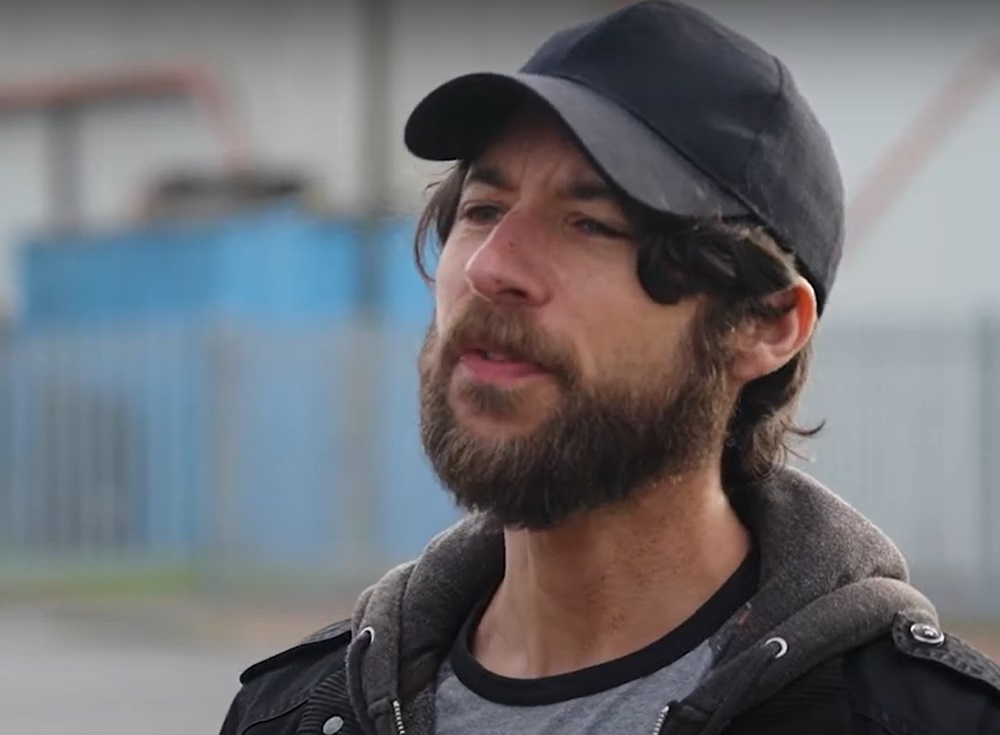The Arts Interview: author João Morais

Isobel Williams interviews Festival of the Ghost author João Morais
Festival of the Ghost is a crime novella with a twist; a grief-stricken, obsessive compulsive young man discovers he can witness events of the past.
While searching for his recently deceased sister’s thesis, he strives to avoid the attention of its subject, a religious sect devoted to the memory of a serial killer.
In this fast-paced, action-packed story, the truth of a disturbing operation is brought to light, and in the process, past traumas are overcome. Contemporary Cardiff provides a compelling backdrop to this daring story of violence, danger, and human connection.
Cardiff
As with your first book, Things that Make the Heart Beat Faster, Cardiff and urban spaces are at the centre of your writing. How has Cardiff influenced your work, and what significance does it have for you?
Cardiff is a good place to base a story as it is a microcosm of much larger places – it has history and modernity side-by-side; it has a good couple of recognisable landmarks such as the castle and stadium; it has old and new multicultural communities; it has pockets of life lived in an indigenous language rooted to this island since before the Romans arrived; yet it all still somehow feels coherent because it is largely walkable and not just one giant suburb that is subservient to the automobile.
And, of course, we are all united by the rain, regularly swapping between the top two rainiest cities in the whole of the UK along with Glasgow. But such variety of history and culture lends itself well to fiction. A writer couldn’t think of a more suitable place to set a story if they tried.
Cultural history
Historical events and cultural history are rooted in this book. You write that “the past is with us in the present”, and in a story about time-warp, this proves eerily true. What motivated you to explore the relationship between past and present?
I worked as a Museum Guide for 17 years, so to me, the past was the present. It would not be uncommon for me to explain to a couple of hundred people a day about how people would live their lives in the past. At some point, in order to explain the context of something, you have to go slightly further back, and then you end up talking about the historical thing in the present tense. It must have just seeped into my consciousness.
This fast-paced crime novella feels very different from your previous collection of stories. How does Festival of the Ghost compare to Things that Make the Heart Beat Faster?
Things That Make the Heart Beat faster doesn’t compare I guess because I was trying to do different things. My first book was a collection written over about ten years. It was almost like a Greatest Hits album, if you’ll pardon the pomposity, of things that I had written.
I couldn’t have explored the themes in FotG such as grief, the tyranny of compulsive behaviours, or how we aren’t so different from the people of the past, in anything less than the word count of this finished book.
Where do you find inspiration? Are there any writers that particularly influence your work?
I think most people would agree somewhat that inspiration or any form of creativity is best thought of, metaphorically, as a muscle that you must exercise. The more you are creative, the more inspiration you get to try something new.
I’m a big fan of Lee Child. I love the tautness of his Jack Reacher books. Cormac McCarthy also. One day I would love to write something as funny as the novels of Sue Townsend or Helen Fielding, but I doubt that would be possible for me.
The book critiques the way that the tourism industry has profited from some serial killers and seeks to recentre the victims of these crimes. Did you feel compelled to explore these themes?
Festival of the Ghost went through many versions before arriving at the one that has just hit the shelves. Between the initial draft which was a big mess where I got all my ideas down and the next one that had more in the way of structure to it, I re-read Hallie Rubenhold’s The Five, about Jack the Ripper’s five ‘canonical’ victims.
In this biography, Rubenhold seeks to recentre the victims and barely mentions their psychopathic killer at all. This book helped me realise that I had to do the same, even though the victims in my story are fictional.
Certain aspects of the tourism industry are truly tasteless to me. Take the Jack the Clipper hairdresser, or the Jack the Chipper Fish & Chip shop, both in Spitalfields, which make a psychopathic figure out to be somewhat of a jokey rogue. Or the people who take selfies at Auschwitz or Dachau, or even the TikTokers who swarmed the River Wyre for content when Nicola Bulley went missing.
I hate this sort of thing which is probably why I was drawn to write about it.
What do you hope that readers will take away from this book?
I hope that readers will have a good read and enjoy it. I would be over the moon if maybe some of them saw the way people lived their lives in the past in a different way.
Festival of the Ghost by João Morais was a prize winner in the New Welsh Writing Awards and is published by Parthian Books. It is available from all good bookshops.
Support our Nation today
For the price of a cup of coffee a month you can help us create an independent, not-for-profit, national news service for the people of Wales, by the people of Wales.





